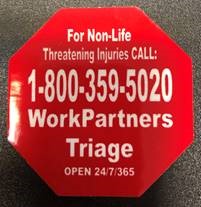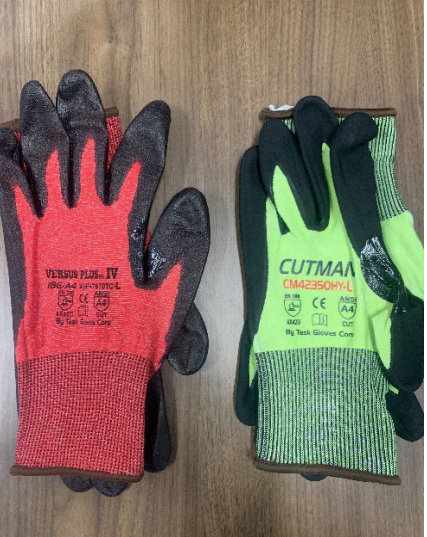Work can be hard on the hands. Along with the wear and tear of using tools and handling heavy, sharp-edged or coarse equipment, hands are exposed to weather, chemicals, dirt, solvents, fuels, grease, cutters, and more. While your hands are one of the most used parts of the body, they are also the most mistreated. Many injuries to the hands can be prevented if you first think about what you are asking your hands to do then making sure they are protected.
Wear proper hand protection
Gloves can protect your hands in many jobs. They can provide protection when handling rough or abrasive materials and give you better gripping power. They can also protect hands from sharp objects, thorns, and cutting tools. Some gloves are especially designed to protect the hands from solvents, petroleum products, and many agricultural chemicals. To work best, gloves should fit correctly. Overly large gloves can interfere with work or get caught in moving parts, putting your hands in danger.
Hand protection can also include specific creams applied before work to guard against dermatitis-causing grease, paint, or chemicals. A good hand lotion can soothe and moisten dry or cracked hands after a job.
Keep hands out of harm’s way
Recognize the hazards of the job whether working with sharp objects, cutting tools, chemicals, pinch points, or rotating equipment. Follow safety procedures, even if you have gotten away with short cuts before. Always remember basic safety principles:
- Think through each job before you do it, and then work carefully and deliberately.
- Ensure your free hand is in a safe place when cutting drywall or other materials.
- Keep your hands away from rotating equipment and never use your hands to stop rotating parts.
- When lifting a load, check for protrusions such as nails, splinters, screws, metal banding, or broken glass.
- Watch your fingers and hands when lowering heavy loads; they could get pinched.
- Keep your hands away from loads being moved mechanically.
- Never use your fingers to test the temperature of gases, liquids, or machinery.
- If you do injure your hand, get prompt treatment and report it to your supervisor.
Your hands are like finely crafted instruments of amazing strength and dexterity—your most valuable tools. Protect them and keep them safe.

